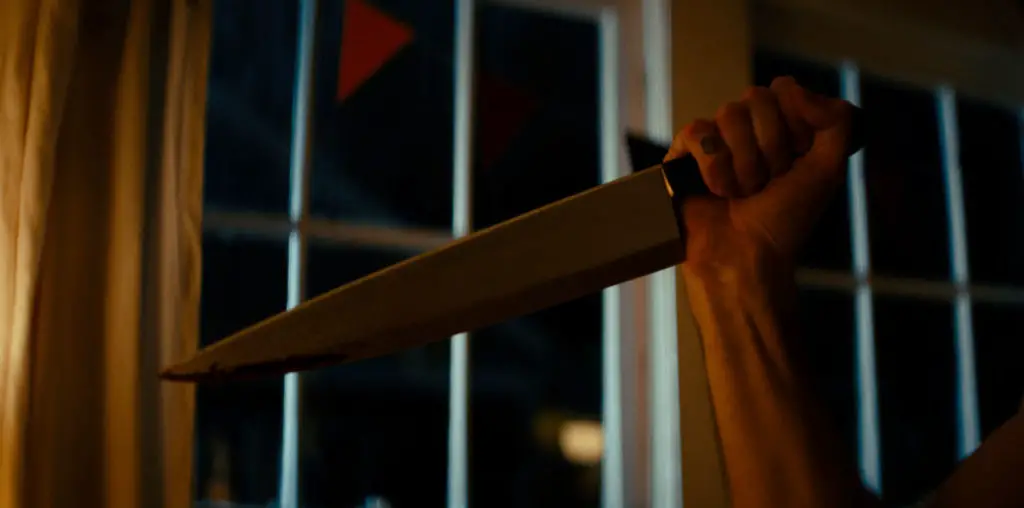
I may’ve gotten home from Dallas late last night, but that doesn’t mean the 2010 Dallas International Film Festival is done. It actually still has 5-6 days left of films and fun… just no more “me.” This is probably a good thing. Having a guy wandering the festival who spends his nights with a light-switch-loving Hotel Ghost probably goes from novelty to “I think he’s lost his mind… F**K! Here he comes!” real quick. And not like my non-ghost festival time was without incident. Anyway, I wanted to focus on the things that have gotten less attention because of my Hotel Ghost and other adventures, and that focus needs to be on the films.
Reading the older blog entries, it gives the impression that I did very little but cause trouble, but I did spend a great deal of time watching movies. I think I already touched on my love for “A Town Called Panic,” but here’s a list, and my thoughts, on the other films I saw:
“The Red Chapel”

A hit at the 2010 Sundance fest, I’ve been looking forward to this documentary since hearing the buzz, and I’m glad I got to finally see it. The documentary follows a Danish filmmaker and two Danish-Korean comedians as they travel to North Korea to perform a show as part of a “cultural exchange.” While they’re there, the true show turns out to be the one their North Korean handlers perform for them, in order to give the illusion that all is well, that all are happy and that North Korea is not a horrible place to be.
“The Red Chapel” is a moving documentary, and an uncomfortable one. For all the absurdist comedy, the palpable sense of fear and dread that leaks through the screen infects the audience too. I feel that this film is a great complement to another documentary, “Yodok Stories,” as watching one and then the other will only elevate both films. In “The Red Chapel,” you get the sense that something is very wrong, but you have to take the Danish filmmaker’s word of it, because nothing is explicitly onscreen. In “Yodok Stories,” you find out specifically what it is that the North Koreans are hiding in “The Red Chapel,” straight from the mouth of North Korean defectors and escapees. You need to see both.
My fear, after having watched “The Red Chapel,” is for the North Korean handlers and their families safety now that “The Red Chapel” is making the film festival rounds. Sure, they were duplicitous and fake, but they were so out of a very real fear (as you learn in “Yodok Stories,” punishment in North Korea is a full family affair; grandparents, children, cousins… one gets in trouble, all suffer). They are not the enemy, the system of fear and punishment is the enemy. It would not surprise me if those seen on-camera in “The Red Chapel” are no longer alive, or are in a prison camp, today. Which is f*****g ridiculous.
“I Am Love”

My gut reaction watching this film was that I was watching one of those Spanish network soap operas, where they take an average soap opera and really play up the campiness and drama to silly levels, but that I was supposed to take this one seriously. From the exploding, seemingly unrelated score (a person walks down a hallway and the score would lead you to believe they’d just robbed a bank and were running for their lives; okay, maybe the musical score was tied to the unseen emotional subtext and not what you saw onscreen, so I’ll give it a pass, but still… over-the-top) to the unemotional way everyone seems to move through this film, it’s a family drama that’s so subtle in surface emotion that it beats you over the head with everything else.
The film tells the tale of the Recchi family, a rich and powerful family in Italy in the midst of a change, as it is time for the family business to be passed down from the patriarch of the brood to the next deserving. Similar to “The Red Chapel,” everything that goes on is a play of poses and societal position. Big parties are held, people interact on a strictly surface level. It’s “Phoniness of the Rich and Famous,” set in Italy. However, as one would expect, nothing is as it really seems on the surface, and eventually everything tends to chaos and disarray.
You can predict what’s going to happen at every turn, and there were times when I prayed the film wouldn’t go the obvious route, just so it would feel less like a soap opera to me and more like a movie, but to that end I was let down. “I Am Love” was just not for me. Tilda Swinton is wonderful in it, but then again so is everybody else. I didn’t necessarily like any of the characters, save the family maid, but I understood why things went they way they went. I just wish they didn’t.
“Colony”

“Colony” is a documentary that seeks to find answers about what’s happening to the suddenly disappearing bee colonies around the world. My interest in the film was, like many who’ve read about the disappearing colonies and are worried about what that could mean for the food supply (bees pollinate trees and plants, which leads to food and other agricultural importance; no bees, missing bees or less bees is a HUGE problem), I needed to know what was happening to the bees. But this documentary never delivers on the answers… it just tells you that it’s looking for them.
Here’s my main problem with a film like this: it plays as if it’s educating people on a phenomenon that no one knows about, except that, in reality, for someone to make a decision to buy a ticket to see a film on this subject, they’d have to already know SOMETHING about what’s going on. So, with those people in the audience, you should be giving some sort of answers beyond “we don’t know” or “we’re looking” because… as an audience member, there is no message for me. There’s no call-to-action (am I supposed to be lobbying Congress to help find more money for research into this), there’s no anything. I understand, if there’s no answer, then you can’t give an answer. Again, then, what can I do to help find an answer? Educate me there too.
The film seems to rest on pointing the finger at pesticides, but then, as you watch the film, you realize there’s no reason to point the finger at pesticides. No real statistical data, and there’s not one expert in the film who even hints that pesticides are the problem. If it’s a sickness in the bees, or a parasite… this could be a natural phenomenon that will have to work its way out. I don’t know. I’m sure as frustrating as it was for me to watch, it has to be a thousand-fold more frustrating for the beekeepers and farmers dealing with this everyday.
The other big mis-step the film makes is, about midway through, it splinters to focus specifically on one beekeeper family and their issues with the bee market (selling bees to pollinate farms) as the financial issues plaguing the economy trickle into agriculture, making the money for anyone to keep their jobs that much more scarce. With this newfound film focus, things turn into a kind of beekeeper reality show, and suddenly all the ground we were getting in the scientific research and asking questions disappears to focus solely on the economy of one family. Which is fine… in a different film.
Ultimately, “Colony” should’ve been two films, and they both should’ve been shorts. Film “A” educates that bees are disappearing, asks why and informs on how they’re looking for answers. Great short film. Film “B” focuses on one family and their hardship. Touching drama, great short film. But “Colony” tried to combine the two for a Film “C,” and Film “C” lacks focus and, ultimately, any real answers beyond conjecture. Frustrating to watch.
My thoughts on “Waking Sleeping Beauty,” “We Are the Sea” and “Lovers of Hate” will come in the next blog entry…


